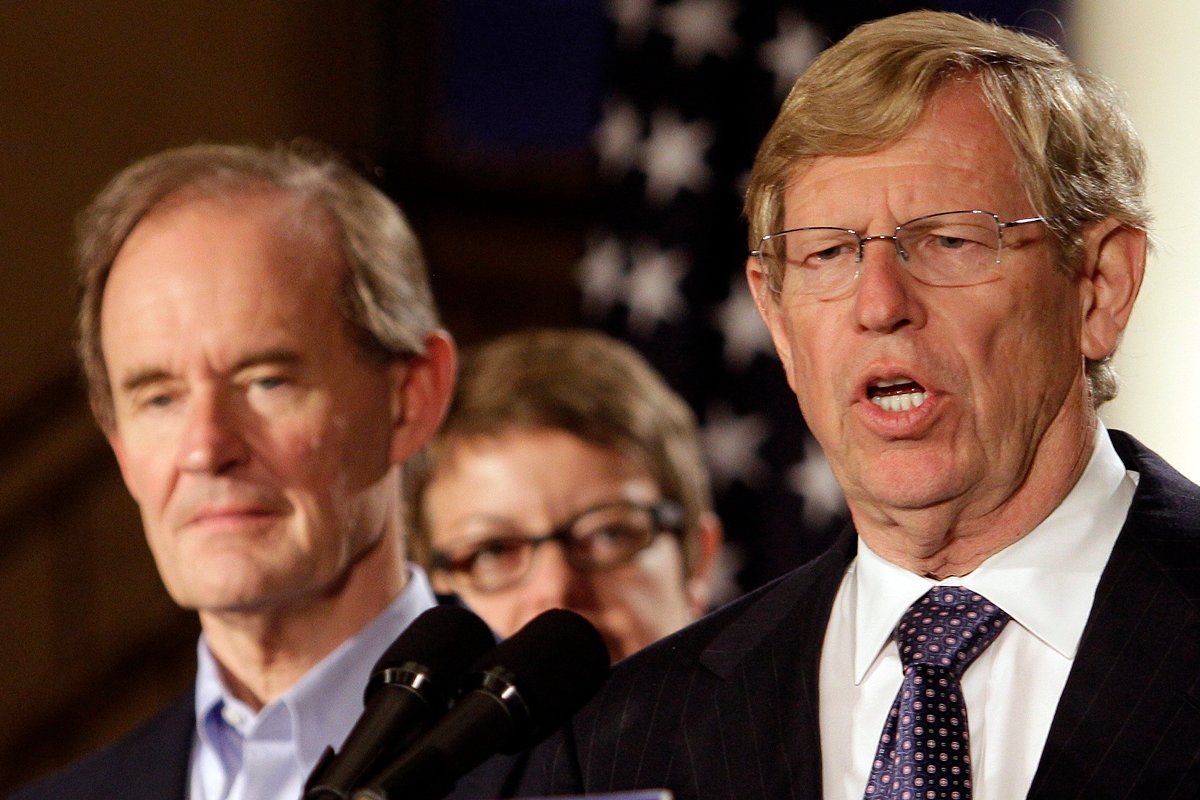
They were bitter foes in Bush v. Gore, but neither Ted Olson nor David Boies hesitated at the chance to work together on overturning Proposition 8, which banned gay marriage in California. Olson didn't like government meddling in people's private lives, and Boies had a long background with civil-rights litigation in the South that he believed applicable to gay marriage.
But many veterans of the gay-rights movement were very nervous about the legal case brought by these accomplished attorneys. For years, lawyers and activists had been chipping away, slowly and painfully, at the smaller laws and prejudices that prevented full equality for lesbian and gay Americans—relating to the military, employment protection, hate crimes, and marriage. Olson and Boies were new to the cause, and even blocked the formal participation of veteran gay groups as parties to the case. (The powerhouse legal duo felt they could be more successful operating as a smaller cohesive team.) Their hearts might be in the right place, but how could these newcomers possibly understand the complex nuances of fighting for LGBT rights on multiple fronts? Were Boies and Olson pushing a major court case on Prop 8 too quickly? Was the risk of failure—which might set back the marriage battle for years—too high?
Wednesday's ruling overturning Prop 8 would seem to put those fears at ease, but the case is far from over. Clearly, those who had called for swift and dramatic action against Prop 8 were ecstatic Wednesday evening: people like Chad Griffin, the young mastermind behind the case, who told me in the San Francisco courtroom last January, when the trial was underway, that the one thing he refused to accept was the right of fellow citizens to vote yea or nay on what he considers his basic civil rights. Or the older couple I saw each day on the hard wooden benches behind Griffin, lucky enough to have been married before the right was taken away from their friends. Even gay-rights advocates who were skeptical about the case must be pleased with Wednesday's outcome.
But the real fear has always been about what happens as the case progresses. For now, lawyers for both sides are poring through the ruling to answer basic questions, such as whether it affirmatively creates a right to same-sex marriage. Ted Boutrous Jr., an attorney with the Olson-Boies team, tells NEWSWEEK: "The decision holds that gay men and lesbians—like everyone else—have a fundamental right to marry under the due-process clause and that it violates equal protection to deprive them of that right because of their sexual orientation."
Cardinal Francis George of the U.S. Conference of Catholic Bishops would be among the first to disagree. "The misuse of law to change the nature of marriage undermines the common good," he says. "It is tragic that a federal judge would overturn the clear and expressed will of the people in their support for the institution of marriage. No court of civil law has the authority to reach into areas of human experience that nature itself has defined."
The Mormon church, another major backer of Prop 8, "regrets" the ruling. "California voters have twice been given the opportunity to vote on the definition of marriage in their state, and both times have determined that marriage should be recognized as only between a man and a woman," says spokesman Michael Purdy. "We agree ... We recognize that this decision represents only the opening of a vigorous debate in the courts over the rights of the people to define and protect this most fundamental institution—marriage."
Wednesday's ruling doesn't mean California will start issuing marriage licenses to same-sex couples tomorrow. The judge has temporarily put his ruling on hold while he considers a request for a stay on the ruling as Prop 8's supporters appeal to the Ninth U.S. Circuit Court of Appeals. "No marriages tomorrow," says Fred Sainz, a spokesman for the Human Rights Campaign, a gay-rights group in Washington.
No matter how the Ninth Circuit rules, the case is likely to be appealed to the Supreme Court. Just prior to closing arguments in June, Olson predicted that the case could take a year in the appeals process before even coming close to the Supreme Court for a final resolution. "Then with the Supreme Court, it could take six to eight months to get it on the docket," he said. "And I'm being optimistic here." In addition, no one is clear how far-reaching the case could eventually be. "The scope of the case once it reaches the Supreme Court is up to the court," Olson said.
In the meantime, advocates are working multiple other avenues. In Massachusetts, where gay marriage is legal, gay-rights lawyers are pursuing a narrower challenge to the federal Defense of Marriage Act (DOMA). In New York and Minnesota, efforts are underway to have the state legislatures approve marriage for gay couples. "And in 2012, marriage equality will more than likely be on the ballot in California, Oregon, Washington state, and Maine," says Sainz. "Generational replacement and time are on our side."
Uncommon Knowledge
Newsweek is committed to challenging conventional wisdom and finding connections in the search for common ground.
Newsweek is committed to challenging conventional wisdom and finding connections in the search for common ground.





